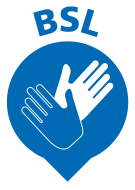Providing vital patient care when every second counts
Community first responders (CFRs) are a team of volunteers who are trained and dispatched by us to help with emergencies in their community before the ambulance arrives. They play a crucial role in providing early patient care throughout the North East, both in rural and urban areas, and are an integral part of our service.
Early intervention
Community first responders are dispatched at the same time as an ambulance, but often arrive first as they’re nearer. Their role is to help stabilise the patient within those crucial first few minutes of an emergency and provide appropriate care before the ambulance arrives on the scene.
They deal with a specific list of medical emergencies, including cardiac arrest, and they are a crucial part of the Chain of Survival in the North East.
This early intervention can be lifesaving and improve the recovery outcomes for patients.
There are three types of responders:
- Community first responders
Volunteers who respond to emergency calls in the area where they live or work. They are alerted to emergency calls via the National Mobilisation App (NMA), which uses GPS to track a responder’s location. - Co-responders
Employees from an existing public service, such as police, fire or military. Their training is the same as a community first responder and they are available for emergency calls while carrying out their regular work duties. - Staff responders
Staff who work for the Trust in various capacities, but also respond in their spare time outside work. They can also be called from work in times of high pressure.
All responders in the North East are fully committed to providing immediate urgent care to patients when timing is critical, and we’re enormously grateful for the work they do.
Meet some of our community first responders
Dunmail began volunteering as a CFR in Newbrough in 2010 and is now one of the CFRs trained to attend to falls patients.
He said: "It’s really satisfying when somebody is ill and the interventions you provide actually make a difference. It makes you feel appreciated and it gives you confidence in yourself."
Gloria has been a CFR for more than 12 years.
She says: “Knowing you have helped someone, saving their life, speaking a kind word, giving a smile, holding their hand and listening is something that no amount of money can buy, but it can make a whole difference to the person on the receiving end.”
Sue has volunteered in her local community of Middleton in Teesdale for 10 years, having signed up after retiring.
“The difference you can make in the community is huge," she said. "People know what l do and they approach me with problems and I always get thanks from people l have helped."
